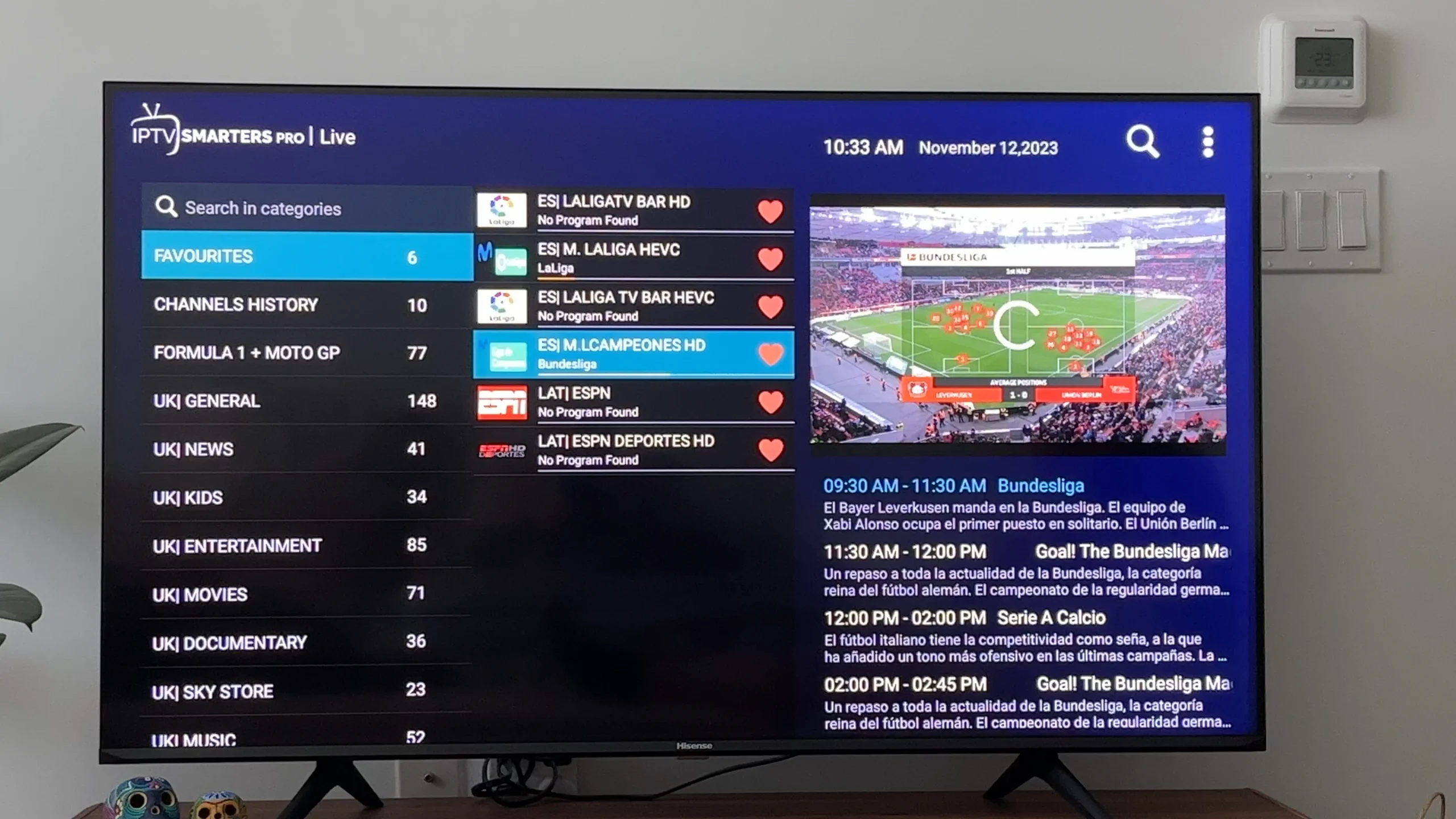Table of Contents
Internet Protocol Television (IPTV) has become a revolutionary way for people to consume television content. Unlike traditional cable or satellite services, IPTV relies on the internet to deliver high-quality streaming. This article explores the intricacies of IPTV, and its common issues, and provides practical solutions for overcoming IPTV buffering or freezing problems.
How To Solve IPTV Buffering or Freezing?
Introduction
In recent years, IPTV has gained immense popularity as a modern alternative to traditional TV services. Users can access a wide array of channels and on-demand content through their internet connection. However, this convenience comes with its challenges, with buffering and freezing being among the most common issues faced by IPTV enthusiasts.
Understanding IPTV
Definition and Concept
IPTV, or Internet Protocol Television, is a method of delivering television content over the Internet. Unlike cable or satellite TV, which relies on dedicated infrastructure, IPTV uses the same protocols as the Internet to transmit video and audio data.
Different Types of IPTV Services
There are various types of IPTV services, including live television, time-shifted media, and video on demand. Each type caters to different viewer preferences and schedules.
How IPTV Works
Understanding the technology behind IPTV is crucial for troubleshooting common issues. IPTV works by transmitting television signals over internet protocols, allowing for seamless streaming. The quality of the viewing experience is heavily dependent on a stable internet connection and the efficiency of the streaming protocols employed.
Common Issues: IPTV Buffering and Freezing
Buffering and freezing can significantly impact the enjoyment of IPTV content. The frustration of interrupted viewing experiences often leads users to seek solutions for smoother streaming.
Causes of IPTV Buffering and Freezing
Bandwidth Issues
Insufficient bandwidth is a primary culprit for buffering in IPTV. Users must ensure they have a reliable and high-speed internet connection to enjoy uninterrupted streaming.
Server Problems
IPTV services rely on servers to transmit data. Server issues, such as overload or maintenance, can lead to IPTV buffering and freezing problems. Choosing a reputable service provider is essential to minimize such issues.
Device-Related Factors
The device used for IPTV playback also influences the streaming experience. Outdated hardware, insufficient memory, or incompatible software can contribute to buffering and freezing.
Tips for Improving IPTV Streaming
Choosing a Reliable IPTV Service Provider
Researching and selecting a trustworthy IPTV service provider is the first step in ensuring a smooth streaming experience. Reading user reviews and considering trial periods can help make an informed decision.
Ensuring a Stable Internet Connection
A stable and high-speed internet connection is paramount for seamless IPTV streaming. Users should troubleshoot their home network, consider wired connections, and eliminate potential interference.
Adjusting Video Quality Settings
IPTV platforms often provide options to adjust video quality. Users facing buffering issues can try lowering the video resolution to reduce the strain on their internet connection.
Advanced Troubleshooting Techniques
Clearing Cache and Cookies
Over time, accumulated cache and cookies can affect IPTV streaming performance. Regularly clearing these files can help maintain optimal playback.
Checking for Firmware Updates
Ensuring that the device’s firmware is up-to-date is essential. Manufacturers often release updates that address bugs and improve overall performance.
Using a VPN for Enhanced Streaming
A Virtual Private Network (VPN) can sometimes alleviate buffering issues by optimizing the route of data transmission. However, users should choose a reliable VPN service to avoid introducing new complications.
IPTV on Different Devices
IPTV is compatible with a wide range of devices, from smart TVs to smartphones and computers. However, optimizing settings for each device is crucial to ensure a seamless viewing experience.
Legal Considerations and Content Quality
Addressing Concerns About Legality
While IPTV is a legal means of content delivery, some services may operate in legal grey areas. Users should choose reputable providers to avoid potential legal issues.
Ensuring High-Quality Content and Resolution
Content quality varies among IPTV providers. Users seeking the best experience should prioritize services offering high-resolution content and reliable streams.
Community Forums and Support Groups
Engaging with online communities dedicated to IPTV can provide valuable insights and assistance. Users can share their experiences, seek advice, and contribute to the collective knowledge of the IPTV community.
Future Trends in IPTV Technology
As technology continues to evolve, so does IPTV. Anticipated improvements in streaming technology and the introduction of innovative features promise an even more immersive and enjoyable IPTV experience in the future.
Conclusion
In conclusion, IPTV offers a modern and flexible way to consume television content. While IPTV buffering and freezing issues can be frustrating, understanding the causes and implementing the provided tips can significantly enhance the streaming experience. Embracing the advancements in IPTV technology and connecting with the community will ensure a seamless and enjoyable viewing journey.
FAQs
- Is IPTV legal?
- IPTV itself is legal, but users should choose providers carefully to avoid potential legal issues.
- How can I improve IPTV streaming on my device?
- Ensure a stable internet connection, choose a reliable service provider, and adjust video quality settings if needed.
- What devices are compatible with IPTV?
- IPTV is compatible with a variety of devices, including smart TVs, smartphones, and computers.
- Why does buffering occur in IPTV?
- Buffering can occur due to insufficient bandwidth, server problems, or device-related issues.



